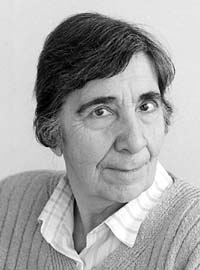Nostalgia

How long does it take a country to become a democracy? How many centuries must pass before the state learns to value the lives of its citizens above all and is prepared to sacrifice its political image and pride in order to save a single life? The Russian democracy has been put to the test (God forbid we ever experience anything of the kind) and failed.
Their regime’s longing for the old methods was especially noticeable in the early hours after that “successful, brilliantly executed” rescue operation, when the microscopic layer of Moscow democracy instantly evaporated. Even under the Soviets a multitude of falsehood such as we witnessed after the storming of the theater with the hostages was seldom registered, let alone that naive and senseless concealment of information that could not be kept away from the public in principle — except perhaps behind the Iron Curtain.
All of a sudden everything in Moscow became secret: no one was allowed to speak about what had actually happened during the special forces’ attack (there are quite a few versions), about the hostages’ condition, about the hospitals they were sent to, about why all of the hostages were hospitalized; the medical personnel was forbidden to share any information with the hostages’ relatives. Instead, journalists and officials quoted praising comments from the West and rejoiced in the rescue operation’s “high professional level,” and that none of the spetsnaz men had been injured. They lied that all the foreigners among the hostages were alive. And this at a time when Russia, Moscow, the whole world held their breath waiting to hear not all those confused and at the same time insolent lies but only one thing: the number of casualties. Shortly afterward, the death toll became the target of falsehood, but the number continued to increase. For many hours it was hard to understand why all those people died, why all of the hostages were hospitalized. Were those above really trying to conceal the usage of gas?
Just imagine how badly the current Russian leadership needed the old Soviet methods. How easy it was to manipulate society! They would have handled the situation so nobody, not even the victims’ relatives would have ever learned about what had actually happened. And none of the relatives would have pressed for information after receiving notices of death from the “competent authorities” and pledging in writing not to divulge “state secrets.” There would have been nothing but sinister whispered gossip quickly spreading all over the Soviet Union.
It hurts to recall all those journalists shouting about storming, although in reality it was just a gas attack aimed equally against the terrorist and innocent victims, among them women and children (one is reminded that use of poisonous gas in military operations is banned by an international convention and even the Third Reich did not dare use it in its death throes). Once again the world has been shown that “everything is permissible” to “save Russia” — as Moscow Mayor Yuri Luzhkov put it. Wrong. On that particular occasion nothing threatened Russia, nothing would have happened to it. Whatever the outcome of the operation. Instead, the lives of hundreds of ordinary people, mostly Russians, were at stake.
Much has been said about the rescue operation’s “high professionalism.” Meanwhile, whoever planned the gas attack did not even bother to inform the medical personnel about the kind of gas to be used (some sources insist that those using it did not know themselves); no one took into consideration the victims’ physical and mental condition; no arrangements were made for antidote injections immediately after releasing the hostages; the soldiers were not briefed on how to retrieve the victims. There was one more lie about the designation of the poisonous gas. It was declared to have an anesthetic effect. In reality it was a powerful chemical warfare weapon with an instant effect. A host of experts have made statements to the effect.
Falsehood spread worldwide, so much of it one can only wonder why it was not used for the good cause, when holding talks with the terrorists. No one would have ever condemned anyone for negotiating a deal with a group of terrorists and giving any promises — in a word, using “unorthodox” diplomacy under the circumstances. As it was, the terrorists certainly expected contact from representatives of the administration — in a word, with truly influential people, rather than insignificant functionaries. But the Kremlin did not deign to do so — or maybe did not know how to go about it. In a word, no serious efforts were made to save the victims by talks, the way Mr. Chornomyrdin had done several years ago. What is it? A shame or old Russian tradition?
We seem be living at the end of the times. Today it is hard to distinguish between the methods and actions of the terrorist and the antiterrorist camp. People will soon be unsure of who they should fear most, terrorists or special forces attacking to free the hostages at all costs. People are killed by terrorist explosions and liberators’ poison gas. Does it matter how one dies if one has to?






